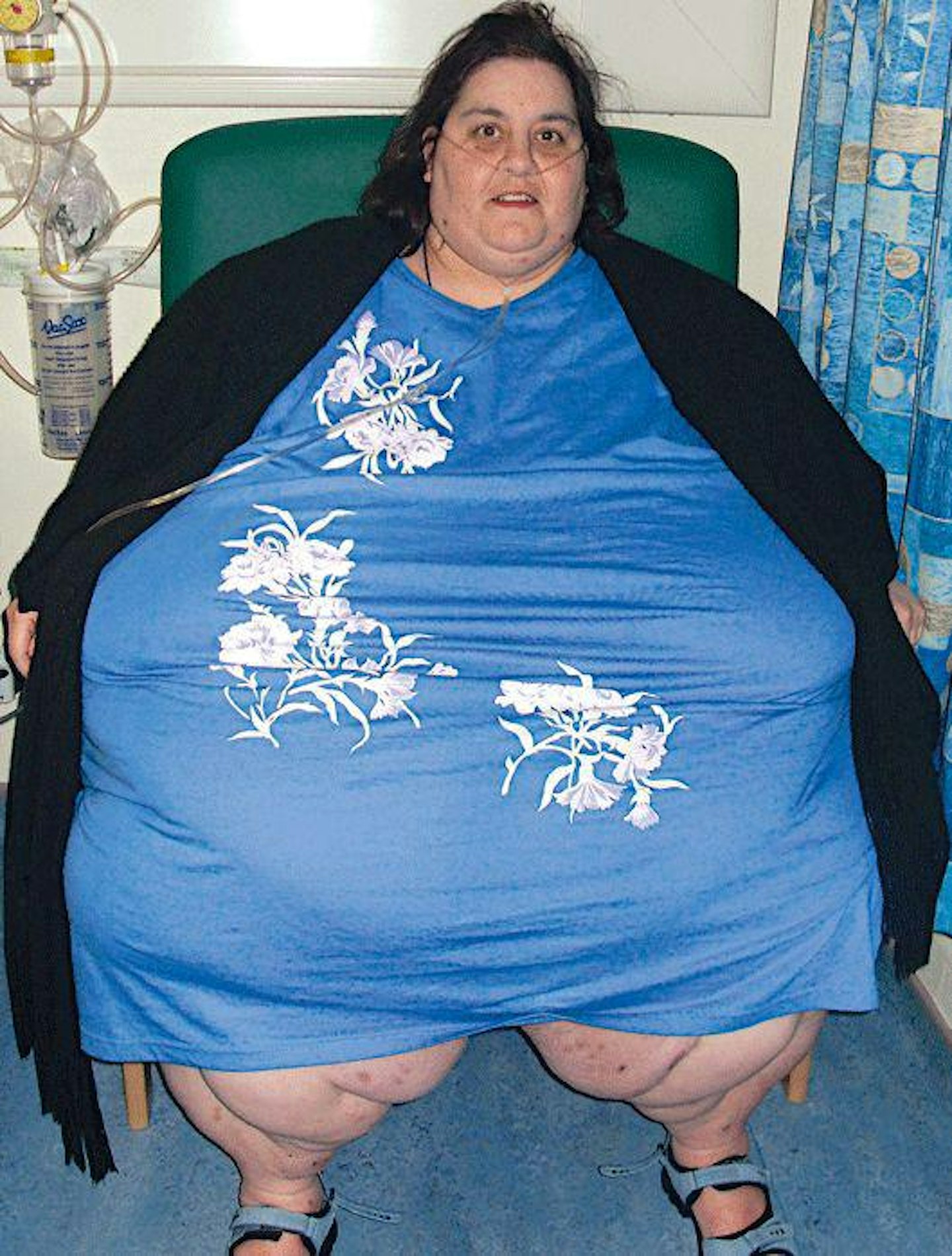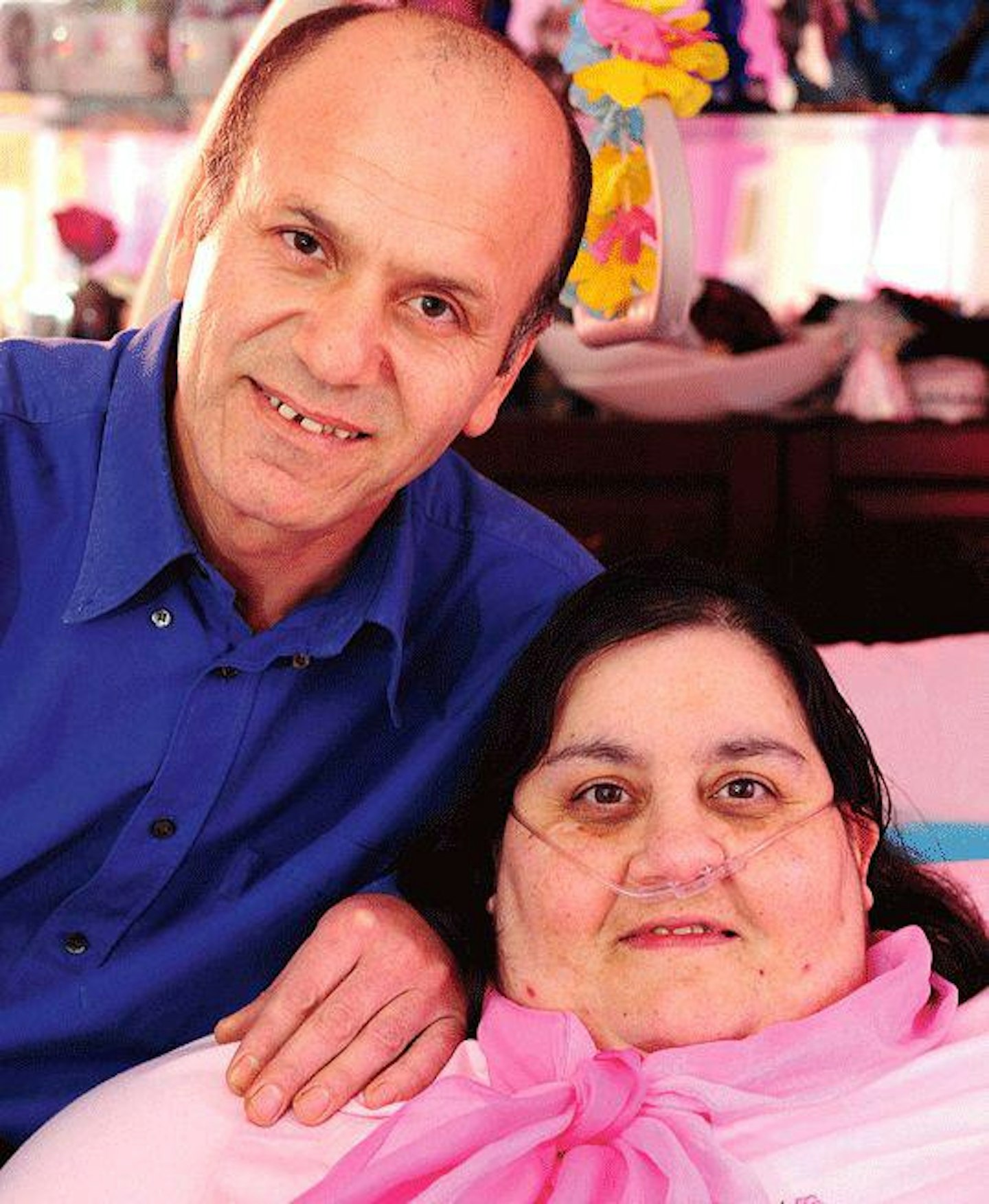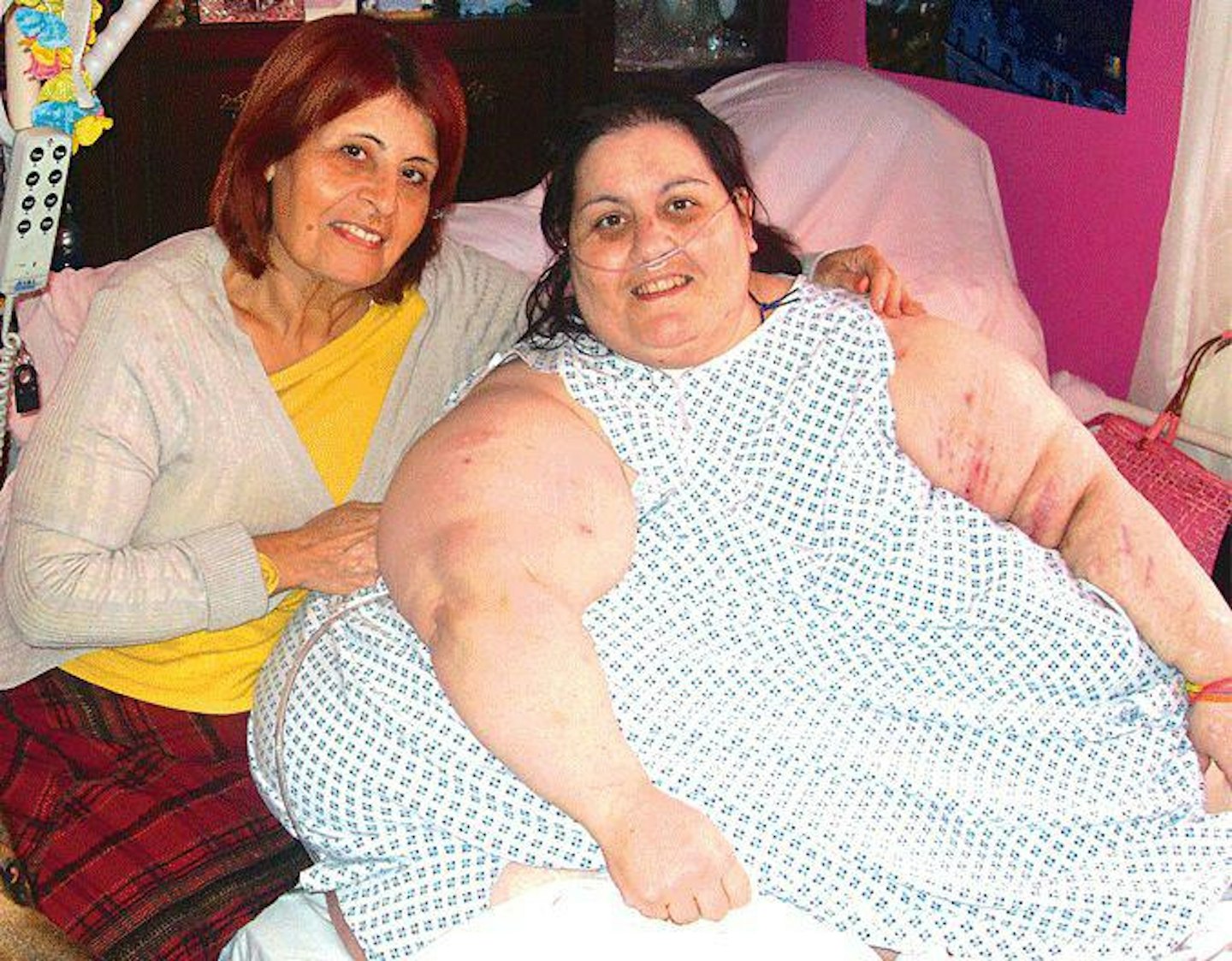Originally published: 3 July 2012
It was reported yesterday that obese Sharon Mevsimler died of a heart attack after struggling to stick to the strict diet she had been placed on.

Speaking to Closer magazine in her last ever interview, she spoke of her battle with weight loss and the junk food addiction that eventually lead to her demise.
Tipping the scales at a whopping 45st, Sharon used to be the UK’s fattest woman, and for six years she begged the NHS to pay for a £10,000 gastric bypass operation to help her lose weight.
The 41-year-old mum-of- four finally had the surgery and lost an incredible 23st – but despite her massive weight loss she was still debilitated by her size.
Bedridden Sharon almost died after developing an infection from sores in June, and lost the use of her legs and hands. Her family feared she may never be able to leave hospital.
'I hated my life and wanted to play with my kids like a normal mum. But now I'm even more miserable because I'm struggling to eat food like chocolate and takeaways'
But, Sharon said she desperately regretted having weight-loss surgery – because she missed junk food.
Speaking exclusively to Closer for the first time since the op, she said: “I thought surgery was the easiest way to lose weight fast. I hated my life and wanted to play with my kids like a normal mum. But now I’m even more miserable because I’m struggling to eat food like chocolate and takeaways.”
Sharon, who couldn’t get out of her reinforced bed at Broomfield Hospital in Essex, added: “If I’d listened to doctors and taken the diet route instead of surgery, at least I could’ve had the odd piece of chocolate or cake. But with a gastric bypass I have to chew for ages, which can be exhausting, so I don’t manage to eat as much.”
Shockingly, Sharon admitted that her family sneaked junk food into the hospital for her.
“If I ask them to bring me chocolate or treats, they will,” she confessed. “I can’t eat much more than one small chocolate bar at a time though.”
Sharon, who was 5ft, was just 8st when she married husband Bulent in 1989. Her weight only increased after she had her children – a son, now 19, 17-year-old daughter and twin son and daughter, aged 16.

She recalled: “I put on lots of pregnancy weight and eating became a way of coping when I was tired or stressed. I loved fried chicken and fish and chips, which I’d eat for dinner, and I ate big fry-ups for breakfast.”
Full-time mum Sharon – who in 2003 started using a mobility scooter because at 35st she couldn’t walk more than a few steps – would often binge while the family slept, eating a tin of Quality Street and a packet of biscuits.
Bulent, 47, who gave up work to care for Sharon, admitted he’d give her chocolates and takeaway food whenever she wanted it.
“I knew it wasn’t helping her, but it was hard to ignore her when she was screaming out for food,” he says.
Sharon, who was eating up to 12,000 calories a day – 10,000 more than the recommended daily amount for women – added: “Bulent gave me a bed bath every day and with the help of my children would lift me on and off a commode. He even had to wipe my bottom. He never complained, but I knew he’d stopped fancying me – we hadn’t had sex for 10 years.”

In 2003, Sharon spoke to her GP about a gastric bypass when she got too big to fit in her scooter. But she was told she had to get down to 30st because her heart could fail during surgery.
A year later, when Sharon was 41st, the NHS paid for her to attend the £5,000-a-week Priory Hospital in London to help her lose weight. She lost 7st, but left after 24 weeks because she didn’t like the food. She recalled: “There were too many smelly vegetables. The thought of it still makes me feel ill.”
Ten months later, Sharon, who had specially adapted scales at home, weighed 40st and had resigned herself to spending her life in bed, until she was told the NHS had agreed to the gastric bypass.
In May 2009 she went on a strict diet of only milk for two weeks to help shrink her enlarged liver before the op.
Sharon, who lost 1st 4lbs in that time, claimed: “It was really tough, but it was the only chance I’d get at the surgery.”
The keyhole surgery to shrink her stomach in June 2009 lasted three and a half hours and went without complications. Four days later, she was allowed home and began losing more than a stone each month.
Sharon recalled: “It was such a relief at first. As soon as I had my stitches removed I started swimming in an inflatable pool in the back garden. It was easier for me to move in the water, and it was great to play with the kids.”
She added: “Doctors told me I could only eat small amounts of liquidised food and fluid every 30 minutes and I had to chew it really well, which was annoying, but I stuck to it.”
But in November 2009, when Sharon, who received care at home, was 30st, she woke to find she couldn’t feel her legs.
She said: “As I was being washed I felt a tingly sensation in my thighs. The nurse told me to try standing up, but I just fell back down on the bed. I couldn’t move my legs at all. Then my hands went floppy and I couldn’t move them either.”
Doctors couldn’t explain the lack of movement, so Sharon was admitted to a nursing home for 24-hour care. “I didn’t mind not having to get up, but it was horrible not being able to feed myself,” she complained.
Incredibly, despite her health problems, Sharon still ate junk.
She said: “I couldn’t eat as much as before the op, but I missed chocolate and cake so I’d occasionally eat some. I tend to have ice cream every day now, as that’s easy for me to digest.”
In June, Sharon, who had several infections as a result of painful sores on her back, caused by not getting up, developed septicaemia. She was rushed to hospital, where she slipped into a coma.
'I couldn't eat as much as before the op, but I missed chocolate and cake so I'd occasionally eat some'
Her mum, Anne Hassan, 62, recalled: “The whole family were called to say goodbye to her. It was terrifying, but we refused to believe she couldn’t pull through. We kept talking to her to try to bring her round.”
Doctors gave Sharon strong antibiotics for the infection as well as vitamins, minerals and glucose, saying she was malnourished. Anne said: “We laughed when the doctor said that, but I guess she was just eating the wrong things.”

Four days later, she came round. But Sharon, who had lost much of her hair as a result of the illness, was still in hospital and didn't know when she’d be able to go home. Doctors didn’t know if she’d ever regain the use of her arms and legs.
She said: “I hate being in hospital. I miss being with my family and my dog Jessie. When I had the op I thought I’d get my independence back, but now it’s like I’m starting all over again. I understand I could’ve died if I didn’t lose weight, but living like this is making me miserable.”
By Natalie Corp
